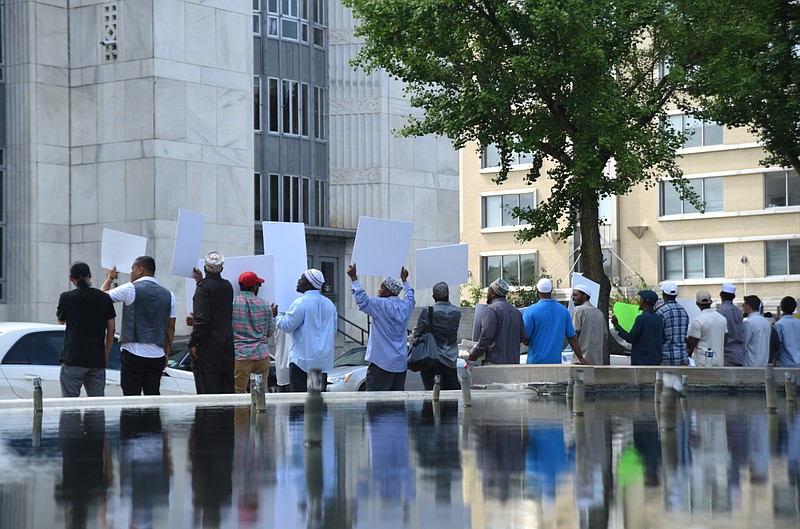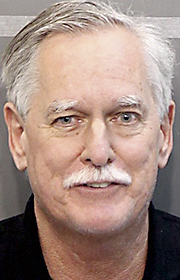
Some jurors in the Robert Doggart case could be hung up on the intricacies of interstate commerce.
Jurors spent about seven hours Tuesday discussing the guilt or innocence of Doggart, a 65-year-old former engineer at the Tennessee Valley Authority who is charged with planning to attack a Muslim community in New York.
Doggart, also a 2014 congressional candidate, faces one count of solicitation to commit a civil rights violation, one count to commit arson of a building, and two counts of threat in interstate commerce, records show.
Two hours into today's deliberations, however, jurors sent a note to U.S. District Court Judge Curtis Collier, asking for clarification on the threats in interstate commerce charges.
The federal government regulates interstate commerce, which often refers to the transportation of goods or people across state lines.
In this case, federal prosecutors have argued that Doggart made two threats over the telephone with his would-be supporters in his proposed attack against Islamberg near Hancock, N.Y. They happened March 22, 2015, and April 9, 2015, prosecutors said, and the Federal Bureau of Investigation was monitoring both calls after a local judge authorized a wiretap and other surveillance on Doggart.
A telephone counts as an instrument of interstate commerce, prosecutor Perry Piper said today, and the government provided ample proof of Doggart making threats over one.
"You'd like me to add the sentence, 'The government need only prove the use of instrumentality or that the transmission occurred in interstate commerce. However, the government need not prove both?'" Judge Collier asked him.
Piper said yes, arguing that Collier could "sweep away" the confusion some jurors were probably having with the 40-something pages of jury instructions.
Starting last week, the government played many phone calls to jurors in which Doggart talks about burning down Islamberg's mosque with explosives and shooting anyone who opposes them with assault rifles.
But defense attorneys countered that Doggart exaggerated a number of facts, never had a consistent plan in place, was goaded by the government's confidential informant, and only wanted to conduct peaceful recon on Islamberg. Doggart was convinced Islamberg's residents wanted to carry out a terror attack on New York City because of Fox News broadcasts, defense attorney Jonathan Turner told jurors in his closing arguments Monday afternoon.
Some of the jury's confusion may result from a cross examination Turner conducted earlier this week with Noori Brooks, a resident of Islamberg who said he runs a bookstore on the second story of the community mosque.
Turner said Brooks made his first book sale to someone in South Carolina in summer 2015, roughly three months after Doggart was arrested that April. After Brooks said the bookstore didn't turn much profit, Turner questioned how Doggart's alleged attack affected commerce at Islamberg. He made a similar argument in a motion to acquit, but Collier turned it down, saying jurors needed to decide the case for themselves.
Today, Collier said he would add the government's clarification in his response to jurors.
The defense also wanted the judge to tell jurors to "consider this [clarification] in connection with all the other instructions and elements," which Collier agreed to do.
Jurors return at 12:30 to continue deliberations.

